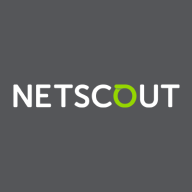

Imperva Application Security Platform and Arbor DDoS compete in the cybersecurity category, providing threat protection solutions. Based on feature comprehensiveness and user interface, Imperva seems to have the upper hand, particularly due to its user-friendly interface and detailed threat intelligence.
Features: Imperva excels with features like correlated attack validation, threat radar, and virtual patching. It provides real-time traffic analysis and custom policy profiling, offering top-notch protection against various internet threats. Arbor DDoS is robust in DDoS mitigation, particularly during high-volume attacks, and utilizes the NetFlow protocol for effective traffic analysis. It is recognized for secure ISP infrastructure protection, making it ideal for handling large-scale DDoS attacks.
Room for Improvement: Imperva could enhance its user interface further and improve support response times while expanding feature sets for detailed reporting. Users also desire improved traffic visibility and fewer false positives. Arbor DDoS would benefit from a modernized management console, enhanced third-party integrations, and better AI features. Licensing complexity and hardware stability are also areas where users seek improvement.
Ease of Deployment and Customer Service: Imperva offers flexibility through its availability in public, hybrid cloud, and on-premises deployments, with high customer service ratings despite needing better localization. Arbor DDoS focuses on on-premises and hybrid cloud environments. While its customer service is satisfactory, some users indicate a need for faster response times and higher support quality.
Pricing and ROI: Imperva's pricing is on the higher end when more features are added; however, its significant ROI justifies the cost, especially in sectors with strict compliance needs. Arbor DDoS, while also considered costly, provides competitive pricing in larger contracts. Its protection capability is valued, yet there is a call for more economical options.
They know how much money they are losing while the system is down, so by increasing the possibility of not having a down website or web application, return on investment can be calculated easily.
The technical support team is very effective in resolving issues.
Although the team is good, they are not fast, and they lack the skills to manage dynamic attackers.
Support for Arbor DDoS deserves a rating of 10 because when there is a problem with implementation, the people I work with are the best.
I would rate the technical support of Imperva DDoS as ten.
This would enhance the knowledge about scalability options available for Arbor DDoS, making it more accessible and useful for users.
They need to purchase boxes monthly to expand their bandwidths, and these new boxes can be added to the installed base very easily.
I find Arbor DDoS to be very scalable.
99% of customers are using the cloud version of Imperva DDoS protection, so they just purchase the new license and scale as needed.
It is a very stable product.
Arbor DDoS is very stable.
The stability of Imperva DDoS is very good, as it seems they have a lot of servers around the world.
I would like to see an option to decrypt the traffic with Arbor DDoS, as some clients are interested in this, particularly for application layer attacks on port 443.
Enhancing the handshakes between Arbor DDoS and third-party solutions is essential for obtaining better and real-time data that supports any organization’s support team effectively.
I would like to see a roadmap for one or two years, and it is tough to predict what will happen in that timeframe without a clearer description.
Maybe Imperva DDoS could use endpoints to get information about the attacks before they commence from the endpoint level or establish cooperation with endpoint vendors to share this information.
The prices for Arbor DDoS are expensive.
For some customers, the cost is expensive, but for enterprises looking to protect their services, it is affordable.
I would rate the pricing of Imperva DDoS as five, where one is very cheap and ten is very expensive.
That is an attack over 10 gigabit per second, and if an attack enters the telecommunication network, that will be a disaster for their customer, their services, and so on.
We have many updates for the library of different attacks, and they have artificial intelligence that automatically learns the process during different attacks.
The platform offers quick mitigation of attacks because Arbor DDoS uses BGP Flowspec, enabling very quick mitigation.
I have utilized Imperva's Intelligent Traffic Filtering feature. This feature helps me understand how the attack is progressing and what is happening inside the requests to our website.
| Product | Market Share (%) |
|---|---|
| Arbor DDoS | 9.3% |
| Imperva Application Security Platform | 8.2% |
| Other | 82.5% |
| Company Size | Count |
|---|---|
| Small Business | 25 |
| Midsize Enterprise | 14 |
| Large Enterprise | 29 |
| Company Size | Count |
|---|---|
| Small Business | 83 |
| Midsize Enterprise | 25 |
| Large Enterprise | 61 |
Arbor DDoS offers a comprehensive defense system against DDoS attacks, integrating a user-friendly GUI and advanced threat mitigation technologies for enhanced network protection.
Arbor DDoS is recognized for its ability to manage high-volume DDoS attacks efficiently, providing extensive protection through real-time traffic analysis and automated threat detection. It utilizes advanced techniques such as blackhole and BGP Flowspec for effective threat management. Arbor's cloud signaling allows users to handle and mitigate volumetric attacks while maintaining service availability. Though it provides robust security features, users note potential improvements in auto-mitigation, scalability, and AI integration. Challenges like an outdated graphical interface, hardware stability, and false positives need addressing to further enhance its usability and integration with third-party systems.
What are the key features of Arbor DDoS?Internet service providers and telecom companies commonly adopt Arbor DDoS to protect their networks and infrastructure from DDoS attacks. It is also implemented in financial and government sectors to ensure web application security and maintain high availability. Arbor DDoS supports a hybrid approach, utilizing both on-premise and cloud solutions to manage traffic efficiently and sustain service quality during attacks.
Imperva Application Security Platform delivers comprehensive and continuous web threat protection. Renowned for its ease of use, it shields web applications and databases from various cyber threats while integrating seamlessly with cloud and on-premises environments.
Imperva Application Security Platform protects web environments by offering advanced security measures against threats like DDoS attacks, SQL injections, and cross-site scripting. As a robust web application firewall, it provides extensive monitoring and bot management capabilities. The platform integrates content delivery networks for enhanced performance and scalability, while real-time traffic analysis ensures consistent protection. Despite its strengths, improvements can be made in policy management and customization options. Users seek better integration with third-party tools and more competitive pricing models. The inclusion of AI for enhanced analytics is also anticipated.
What are the key features of Imperva Application Security Platform?Imperva Application Security Platform is implemented in industries needing strong database and application protection. Companies use it to enforce geolocation restrictions and manage bots, benefiting sectors like finance and e-commerce where data security and threat monitoring are critical. Its ability to protect and ensure data accessibility makes it integral to business operations prioritizing cyber resilience.
We monitor all Distributed Denial-of-Service (DDoS) Protection reviews to prevent fraudulent reviews and keep review quality high. We do not post reviews by company employees or direct competitors. We validate each review for authenticity via cross-reference with LinkedIn, and personal follow-up with the reviewer when necessary.